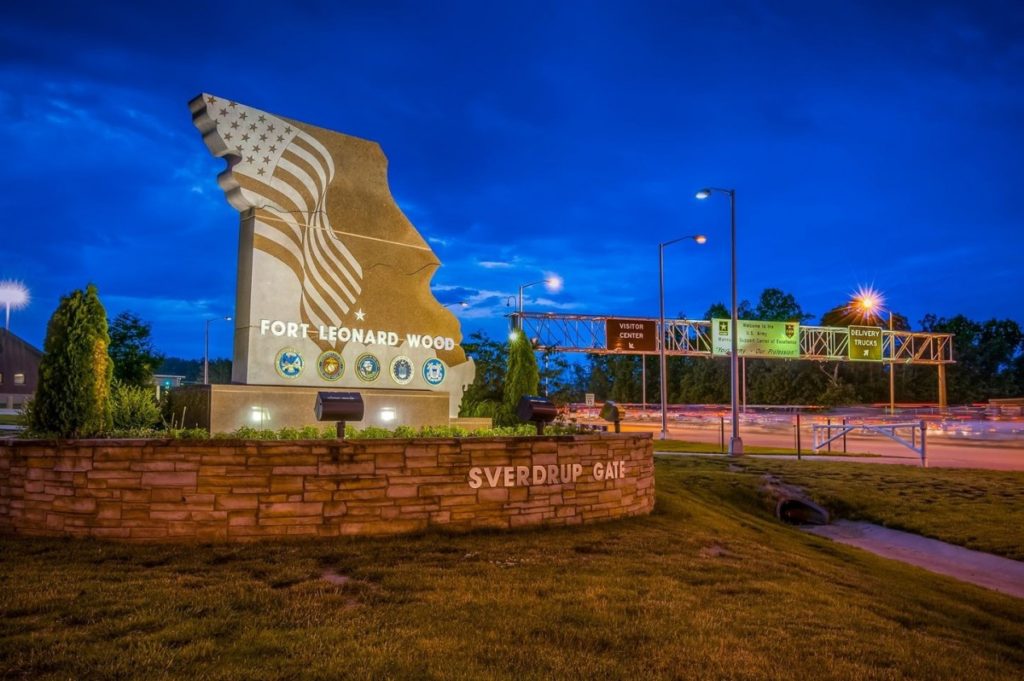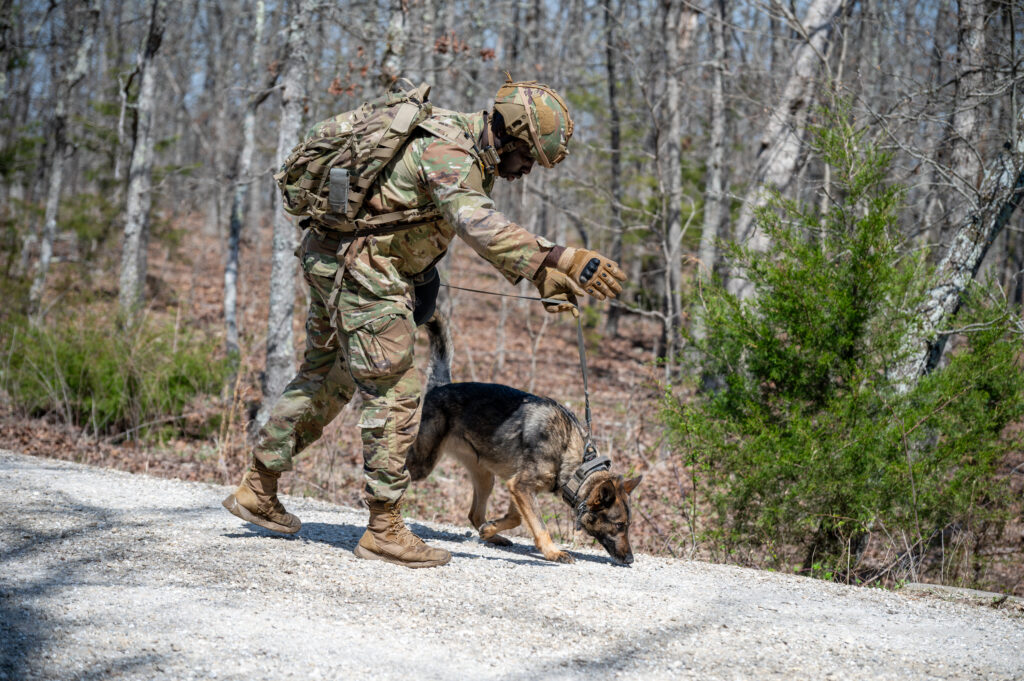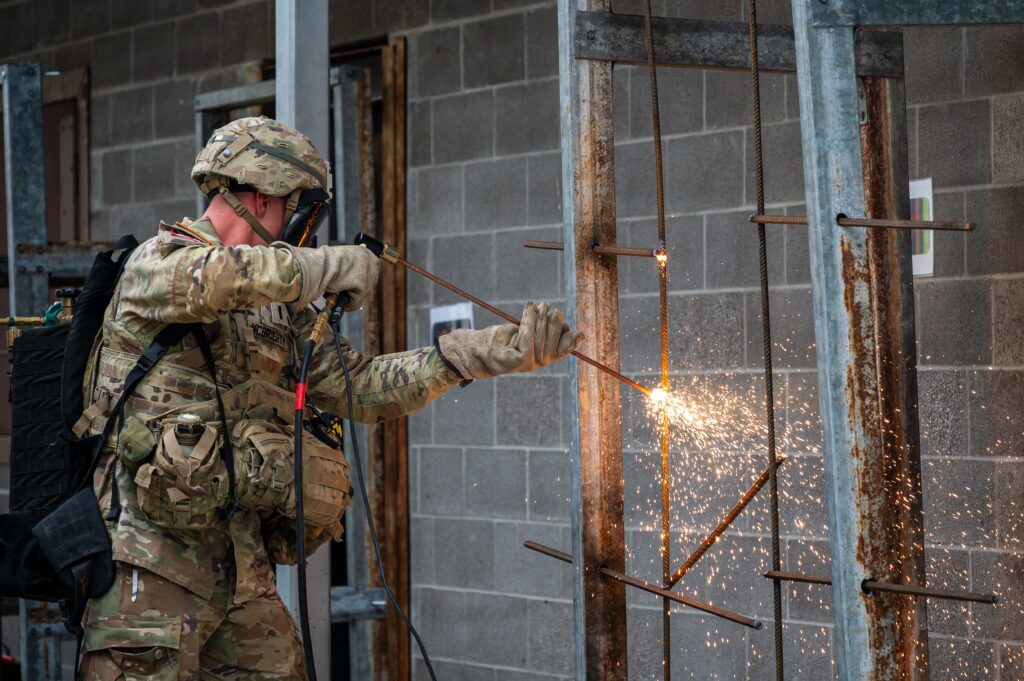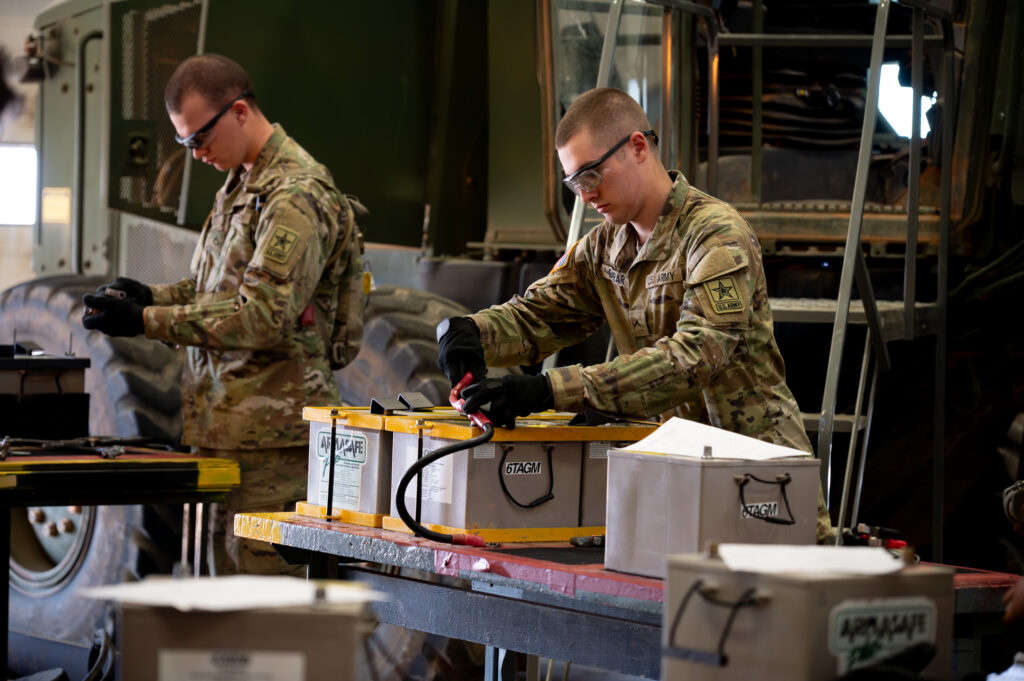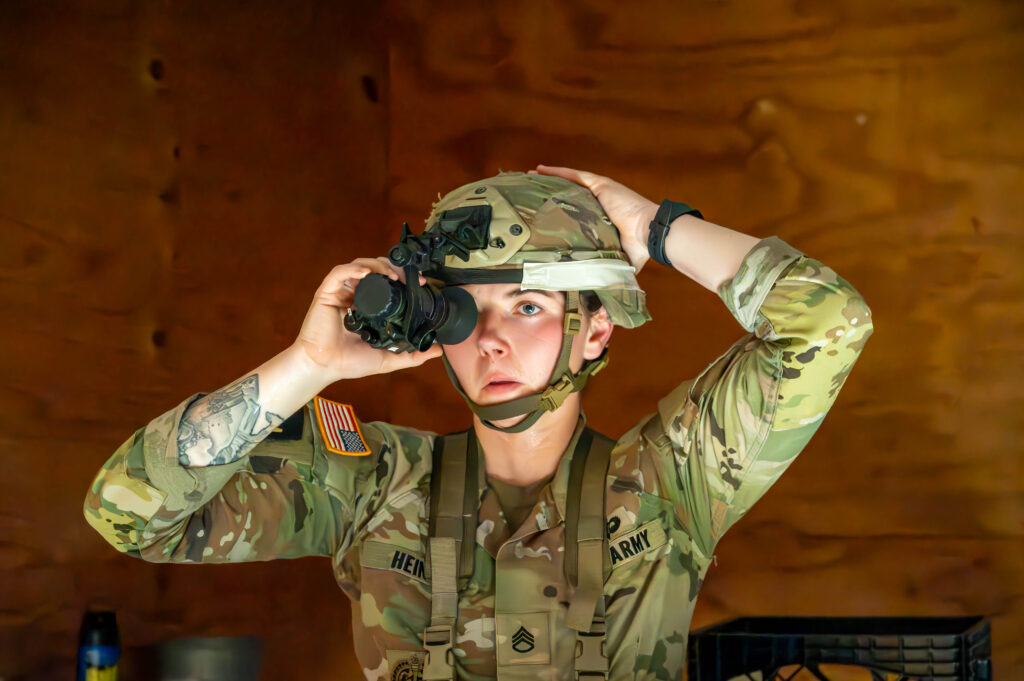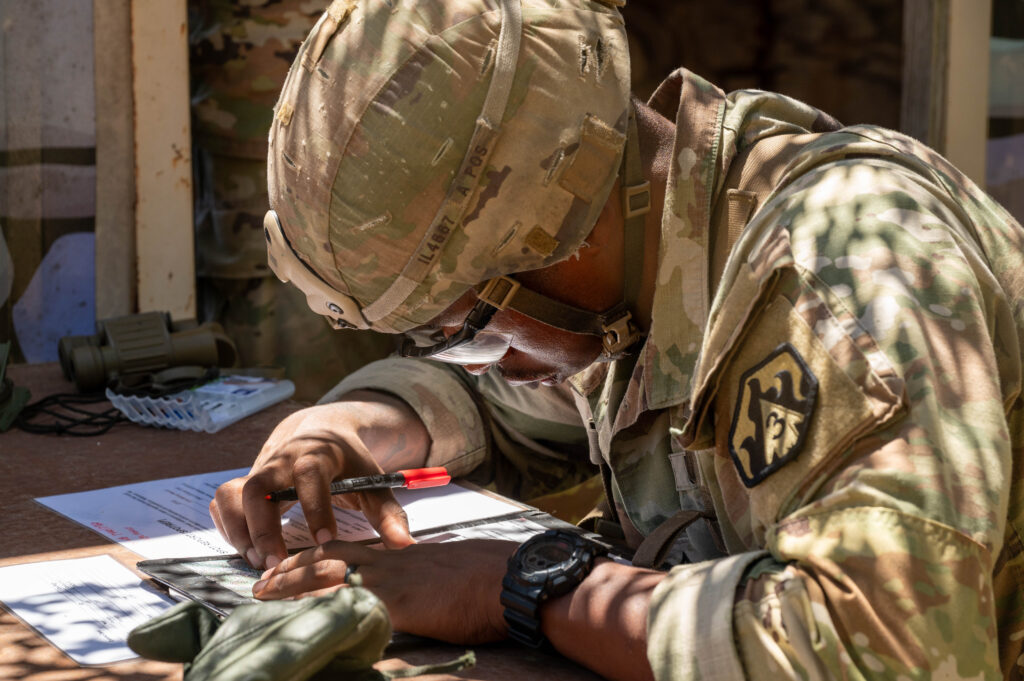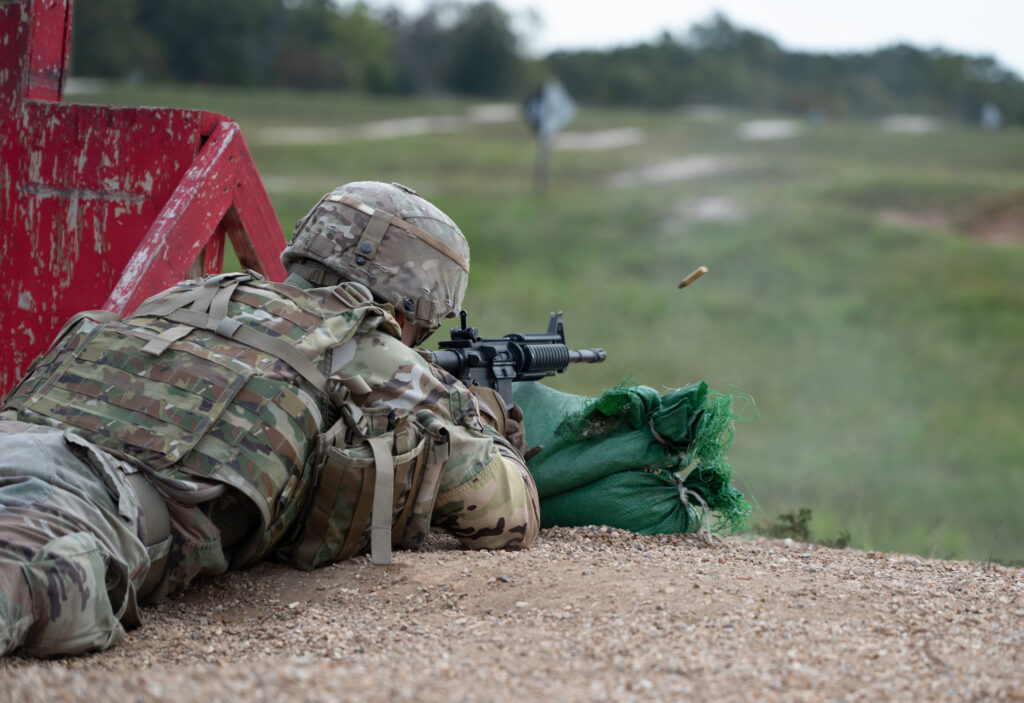Sam Campbell
FORT LEONARD WOOD, Mo. (July 24, 2020) — Col. Aaron Pitney may be new in his role as the General Leonard Wood Army Community Hospital commander, but he’s not new to Missouri – it’s where he grew up.
Pitney’s Army career has taken him from his most recent role as the chief of medical readiness at the Office of the Surgeon General in Falls Church, Virginia, to assignments in New York and Hawaii. He’s now back in the state that reminds him of “home, family and familiarity.”
“I grew up in what I would say are cities,” he said, drawing a contrast to some of the state’s most rural areas.
Born in Hannibal in 1970, Pitney was raised in Kirksville, just half an hour’s drive south of the Iowa border. He admitted that with a population of just 17,000 people – and another several thousand coming from a local university – that this made him a “town kid.”
He spoke endearingly of being able to return to Missouri, a state which, he said, reminds him of duty.
“When I think about Missouri, I think about – people out here are very humble,” he said. “They work hard, they don’t really seek out a lot of personal fanfare or credit for what they do. They just really do their jobs.”
Pitney’s family is no stranger to military service either, he said.
“My mother’s uncle was a chaplain in the Army, and he jumped into Normandy during the D-Day invasion,” he said.
Pitney’s father also served in the Army, graduating from Basic Combat Training at Fort Leonard Wood in 1955. He served two years in the Army and the tradition passed on to his children.
“A lot of my interest from a military standpoint stemmed from one of my older brothers,” Pitney said. “He got a mechanical engineering degree … and was Air Force ROTC and then spent four years as an Air Force officer. That was when I started high school.”
After graduating from Kirksville High School in 1988, Pitney knew he wanted to study at one of the military academies, so he applied and was accepted to West Point. It was during this time that he unknowingly visited the post at which he would serve 30 years later.
“Interestingly, I did spend a summer here as a cadet at West Point,” he said. “They used to have a program here, it was called Drill Cadet Leadership Training, and they would send cadets out to basic training units. I came to Fort Leonard Wood for six weeks and worked in a heavy engineer (Advanced Individual Training) unit in the summer of 1990, and that was the last time I set foot on Fort Leonard Wood until I came here to take command.”
Following his graduation from West Point in 1992, Pitney studied medicine and completed a residency program in pediatrics at Tripler Army Medical Center in Hawaii. Charles Callahan, who would later serve as the deputy commander of Walter Reed National Military Medical Center, oversaw Pitney’s residency. He said he noticed a promising pupil from the get-go.
“He is the only officer … that almost from the beginning I thought would be a general officer one day,” he said. “He just had immediately apparent leadership potential. That was clear from the very first time I met him and my very first years working alongside – and I got to see him in a leadership position but also caring for patients.”
Callahan, who now fills the role of vice president of population health at the University of Maryland Medical Center, said working with Pitney had left such an impression that he was honored to hear the colonel considers him a mentor.
“That’s always a term that’s better awarded than assumed,” he said. “He was a successful clinician and a successful specialist in the care of patients with complex disease – as an important part of what brought him to this point.”
And that same discerning doctor’s mind is evident in the way Pitney speaks of his vision to lead GLWACH where keeping the patients and staff healthy is a priority that must be met, he said.
“I’d hope that people would know that I care about them,” he said. “I’ve (been) fiercely loyal to this organization from the first minute. In that regard, I want what’s best for the community, I want what’s best for our new Soldiers – I feel a real sense of responsibility to make sure that they’re healthy and they’re taken care of when they come to us.”
Pitney has children older than some of the new trainees who arrive on the installation, he said, and that comparison offers gravitas to the duties he fulfills to the community and to GLWACH – a facility which he said was already on the right track upon his assumption of command.
“I don’t feel like this organization is in some type of need of 180-degree turn or even a 90-degree turn or anything like that, but rather what I want to impart is that we are Fort Leonard Wood’s hospital,” he said. “I just want the community to know that we are here for them.”


-30-
About Fort Leonard Wood
Fort Leonard Wood is a thriving and prosperous installation that has evolved from a small basic training post more than 75 years ago to a premier Army Center of Excellence that trains more than 80,000 military and civilians each year.
Fort Leonard Wood is home to the U.S Army Maneuver Support Center of Excellence and three U.S. Army schools: the U.S. Army Engineer School; U.S. Army Chemical, Biological, Radiological and Nuclear School; and the U.S. Army Military Police School. In addition to training engineer, CBRN and military police specialties for the Army, Fort Leonard Wood also provides gender-integrated in-processing and Basic Combat Training for new Soldiers.
Fort Leonard Wood also hosts and trains with the largest Marine Corps Detachment and Air Force Squadron on any Army installation as well as a large Navy construction detachment.
More information about Fort Leonard Wood is at: https://home.army.mil/wood/index.php/about/mission
